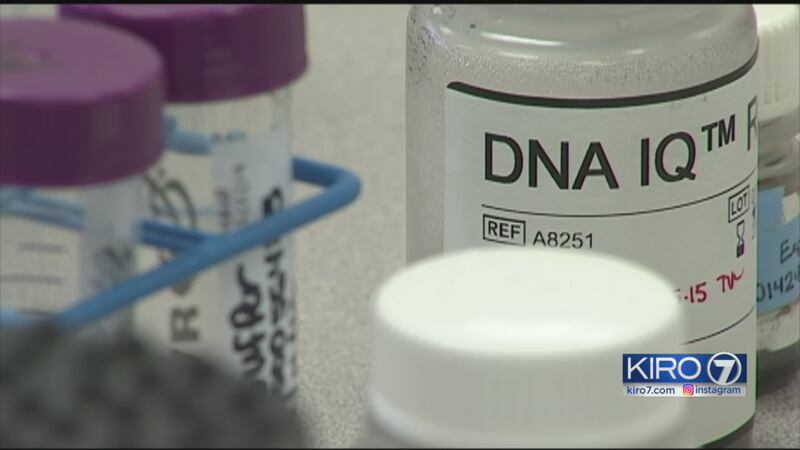A week after a KIRO 7 investigation showed DNA from more than 100 convicted criminals in Seattle was not being tested, Republican and Democratic lawmakers pledged to take action.
“After your initial story, I think some of us got contacted and we realized, wow, we really need to get this fixed,” said Democratic Rep. Tina Orwall, who is the vice chair of the Public Safety Committee. “I’m just grateful you’re shining a light on it.”
Most of the untested DNA samples -- collected with judges’ orders for an international DNA database -- are from criminals convicted of sexually motivated crimes. Each month the number of untested samples grows.
The problem can be solved with simple fix to a state law, but nothing has been since it was discovered in 2014.
"I'm absolutely convinced we can come with bipartisan support," said Dan Griffey, a Republican from the 35th District and a member of the Public Safety Committee.
Criminal convictions under state law are covered for DNA testing at the Washington State Patrol Crime Lab. Convictions from city law are not.
That delay in testing means convicted criminals may not be linked to other crimes.
%
%
Before King County resident Gary Ridgway was identified as the Green River Killer -- the most prolific American serial killer with 49 known victims and many more claimed – his only criminal history involved arrests for patronizing prostitutes.
Patronizing a prostitute is one of the convictions that now requires a DNA sample – but those samples aren’t being tested in Seattle cases.
“It makes me sick to my stomach,” said a victim from a recent Seattle case, who learned of the DNA testing problem only after KIRO 7 contacted her. Nearly all the victims were not notified by authorities.
Griffey wants a fix passed as soon as the Legislature convenes in January.
%
%
“This is the kind of public safety issue that keeps you awake nights,” Seattle City Attorney Pete Holmes told KIRO 7 late last month.
Investigation brings attention to problem
In Seattle, seven municipal court offenses require offender DNA samples upon conviction: sexual exploitation, violation of a sexual assault protection order, communication with a minor for immoral purposes, stalking, harassment, patronizing a prostitute, and assault with special allegation.
But because those convictions don’t come under state law, the DNA form Seattle cases is not entered into the DNA database, which has more than 250,000 samples from cases around the world -- mostly unsolved.
Even with bipartisan support, the earliest a law could resolve the issue is summer 2017. And that’s presuming a law is passed as early as possible.
Last year, a house bill addressed only a small portion of the problem: Municipal court convictions for fourth-degree assault in domestic violence and sexual motivation cases would have been covered.
But that bill died in committee.
Before KIRO 7’s investigative report, no Seattle city official spoke about the problem publicly. With no previous news coverage and few people aware of the problem, authorities worried a fix would take several years.
“We’re writing it as its own bill at this point,” Orwall told KIRO 7 Tuesday. “We don’t want it to get slowed down by other policy legislation. It really needs to be moved through the legislature as quickly as it can.”
‘Let’s fix it in January’
Both Orwall and Griffey believe the easiest fix would be for the Seattle City Attorney’s Office to charge crimes under the existing state law.
Seattle City Attorney Pete Holmes reiterates that isn’t legally possible.
%
%
“Under precedent from our Washington State Supreme Court in 2012, it says that municipal prosecutors in a municipal court can only charge and prosecute municipal crimes.”
Officials with the State Patrol crime labs told KIRO 7, they know of no other cities with the same DNA problem as Seattle. But they say it is possible, and the issue could be larger than Seattle.
Wherever the fix needs to be, Orwall and Griffey promise to get it done as soon as possible.
“Absolutely,” Griffey said. “Let’s fix it in January.”
KIRO 7 will continue to follow any progress. Follow this link to read our initial investigation that exposed the DNA testing problem.
Cox Media Group








